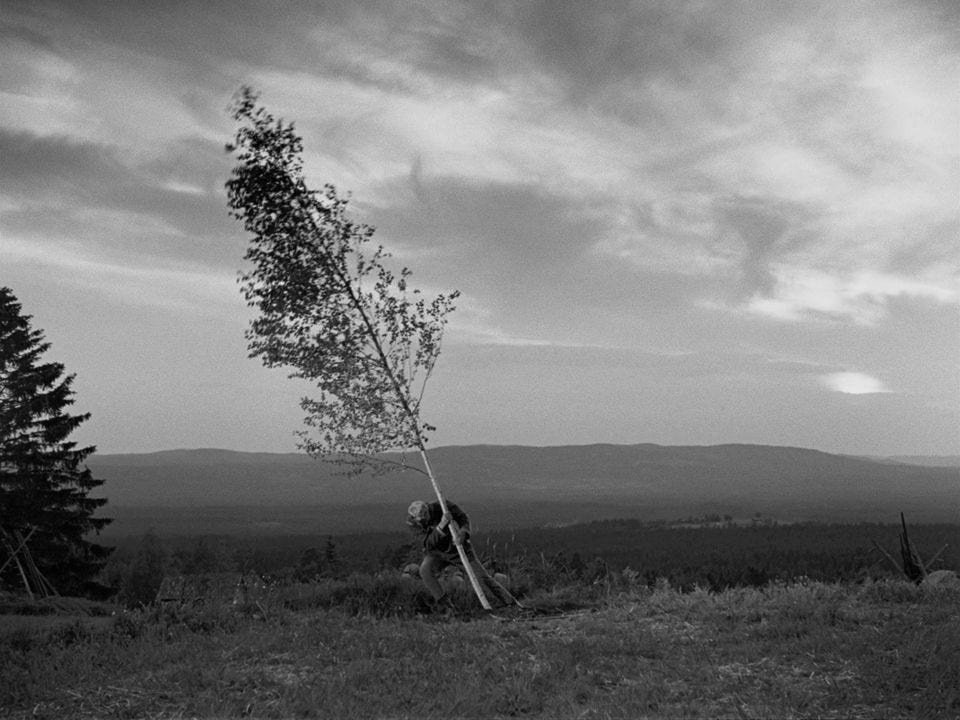100 Movies Every Catholic Should See #111: The Virgin Spring (1960)
Directed by Ingmar Bergman
The Virgin Spring watches and flows like an Old Testament story, and was based on a 17th-century Swedish poem called Töre's daughters in Vänge. While the story may seem distant, the film tells a story of a medieval Swedish family whose innocent daughter is raped and murdered. What transpires is a tale of revenge, jealousy, and ultimately redemption that though there may be heavy content discussed, is well worth the time of any Catholic.
One of the core conflicts is that between God and paganism. In this particular instance, God and Odin. There have been some (including many exorcists) who assert that many of the ancient gods or deities are in fact demons. I am inclined to believe this notion, and within The Virgin Spring, it seems that Bergman does as well. Throughout the film, there is frequent reference to both God and Odin. God and Christ are referenced throughout by the main family, whose devotion to Christ is intense. Odin imagery is also featured with crows, an ash tree, and even a twisted warped looking old man with one eye. Whenever something in line with Christ is depicted, it feels more subtle (until the very end), while when Odin is mentioned, there is a very real world presence that is overwhelmingly negative. Bergman’s portrayal of the pagan side feels more in line with a Black painting by Goya, while Christ is a gentle guiding force throughout the film. A character that would appear to be Odin’s borderline demonic caricature combined with dialogue describing how other characters seemed to be possessed by devils to fulfill evil desires all point to Bergman’s clear disdain for paganism and favoritism towards Christian values (at least in this phase of his life).
The Virgin Spring’s most important theme, without a doubt, is the notion of Divine mercy and the importance of forgiveness. The film serves as a subversion to the revenge style flick that we are all familiar with, and I will admit is a guilty pleasure for me. Bergman’s work subverts this by showing the casualties that are made through malicious and reckless revenge, and proposes that the only path forward is the path of forgiveness and mercy, which is incredibly fitting for June, being the month of The Sacred Heart. Bergman highlights that while yes revenge may be something desired by all at times, especially when great and terrible evil has been done to us, but it is only through forgiving others and seeking forgiveness from God that we can hope to be redeemed. It is incredibly refreshing to see a film stand firmly on this, and one that targets the religious aspect of forgiveness and submission to God’s will, not just our own will.
The Virgin Spring’s craftsmanship is exceptional, with incredible performances from all, especially the legendary Max Von Sydow, who will be a recurring actor throughout this series. Incredible performances are expertly photographed by cinematographer Sven Nykvisk, who revolutionized how faces were shot. The use of faces in the film is something some audiences may not be totally used to, but within all Bergman films there is great emphasis in the facial performances. We as the audience are frequently forced to observe the faces of the actors and use them to portals into the character more so than in other films. With such attention to detail, it is a refreshing trademark of Bergman that can give audiences differing experiences and new depth to film.
Max Von Sydow’s character gives us a wonderful quote at the end that reads:
“You allowed it. I don't understand you. Yet now I beg your forgiveness. I know no other way to be reconciled with my own hands. I know no other way to live.”
These are words we can all live by, and can be a source of great comfort in difficult times. The Virgin Spring gives us a look into the importance of Divine Mercy and the importance of submission to the will of God, and only God. Ingmar Bergman gives us a heavy but necessary tale to convey messaging that needs to be heard now more than ever, and supplies us with a film that can serve to help us spiritually and artistically.







As far as I am concerned, you saved the best for first. I have seen 9 of Ingmar Bergman's films and I think The Virgin Spring is the best and most powerful. Despite it being a spoiler, it's prudent that you wrote that the daughter gets raped and murdered. I also wanted to add, in consideration of viewers who may not be able to handle it, that it doesn't occur offscreen but is shown in all its brutality. Consequently, this is one of the most difficult movies for me to watch. I have only seen it twice, not including the Criterion DVD commentary. Switching subjects, I didn't notice the negative references to Odin in the film, so thank you for the insight. Overall, this is a superb article.